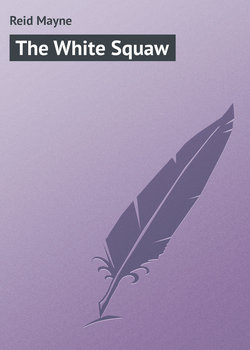Читать книгу The White Squaw - Reid Mayne - Страница 9
Chapter Nine.
The Indian Village
ОглавлениеA week later the table top of the hill over-looking the settlement presented a changed picture.
It was one of active life.
The naked poles, formerly standing there, had disappeared, and comfortable Indian dwellings – wigwams – were in their place.
At the doors of several were planted lances and spears, with plumes and pennons depending from them.
These were the residences of the chiefs.
In the centre of the group was a large building, which was carefully, almost elaborately constructed, and which far o’ertopped over the others.
It was the council house of the tribe.
Around the doors of their respective dwellings, the owners might be seen engaged in every variety of employment or peaceful idleness. Children frolicked in the presence of their parents, and dusky maidens, in twos and threes, loitered up and down the main street or avenue.
At one of the doors an interesting group seemed rapt in attention at the recital of a story that was being told by an aged chief.
The chief was Oluski, and among the individuals around was his daughter, Sansuta.
The others were his kindred.
They had assembled, as was their usual evening custom, in front of his wigwam, to listen to tales of virtue or valour; of deeds done by their ancestors in the days of the early Spanish settlers.
The Indians are admirable listeners, and, in the easy natural attitudes into which they fell as they lent forward to catch Oluski’s words, they formed a charming tableau.
The venerable chief, with dignified action, measured speech, and great skill in modulating his voice, held their attention as much by the manner as the matter of his narrative.
As the incident he was relating developed pathos, chivalry, horror or revenge, so did his audience yield themselves to its influences. By turns they lowered their eyes, shuddered, stared wildly around with knit brows and clenched hands.
Like all people constantly communing with nature, they were easily moved to joy or sorrow; and not civilised enough to make any attempt at concealing it.
As Oluski sat in their midst, the observed of all observers, he looked the picture of a patriarch.
The time and piece were both in harmony with the subject.
Oluski’s story drew to a close. His hero had achieved his triumph. The distressed Seminole maiden was rescued, and joy and union wound up the tale, which had for more than an hour held his listeners enthralled.
“So now, children, away! The sun is sinking in the west; the hour of council is at hand, and I must leave you. Return to-morrow, and I will relate to you some other episode in the history of our tribe.”
The young people rose at the chief’s bidding, and with “thanks” and “good nights,” prepared to depart; Sansuta among the rest.
“Where are you going child?” asked her father.
“Only to the spring, father. I shall be back soon.”
As the girl said this, she turned, as if wishing to avoid her father’s gaze. The other people had all departed.
“Well,” said the old man, after a pause, “do not forget to return soon. I would not have you abroad after nightfall.”
She murmured a few words, and sauntered away from the spot.
Oluski did not immediately depart, but stood leaning against the spear that stood up in front of his dwelling.
The old man’s eyes were filled with tears, while a hand was laid upon his heart.
“Poor girl,” he reflected, as he watched her form disappearing in the fast darkening twilight; “she never knew her mother. I sometimes think I have been but a poor guardian of Sansuta’s steps. But the Great Spirit knows I have tried to do my duty.”
Sighing heavily, he brushed the tears from his eyes, and strode off to the council house.
